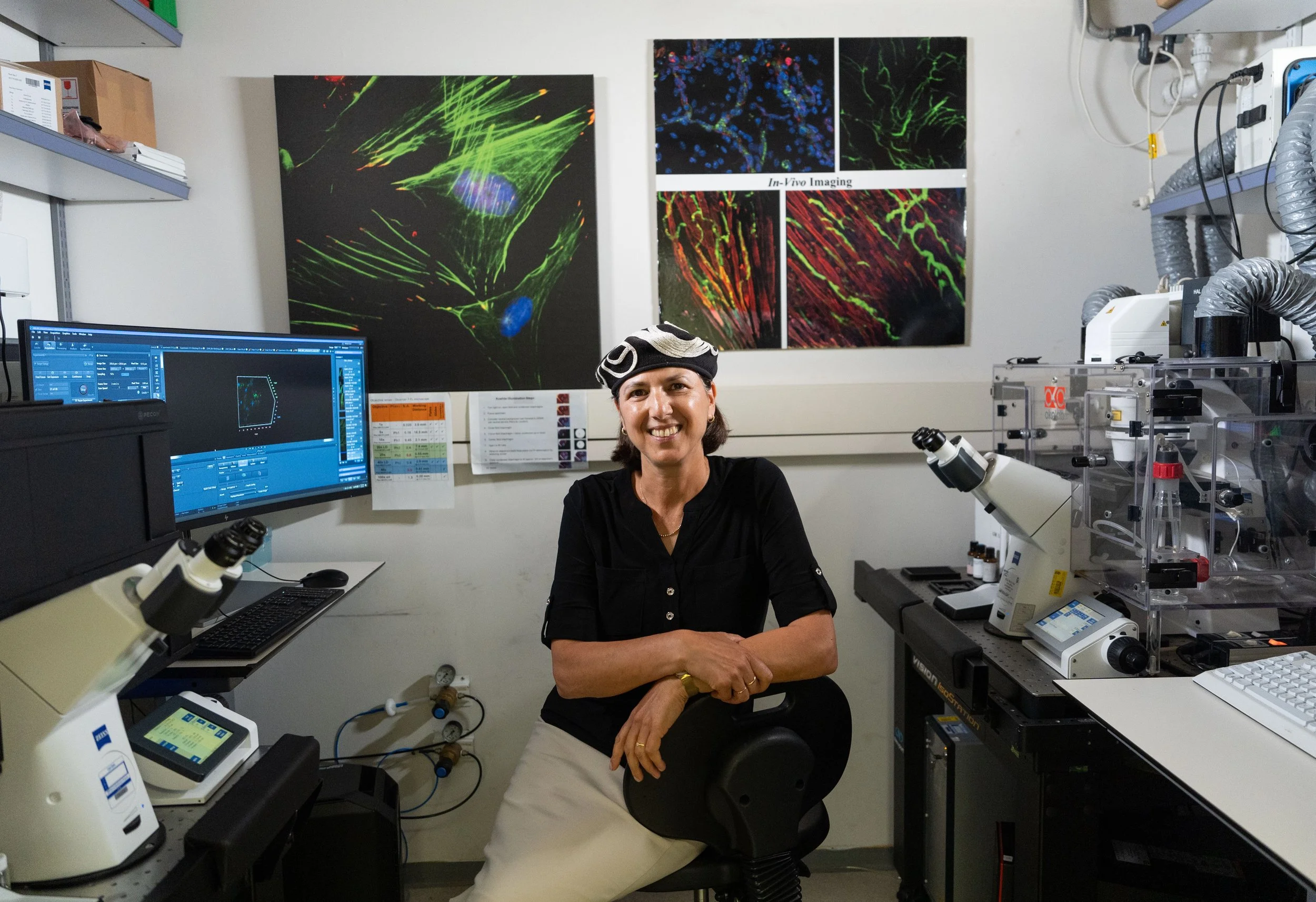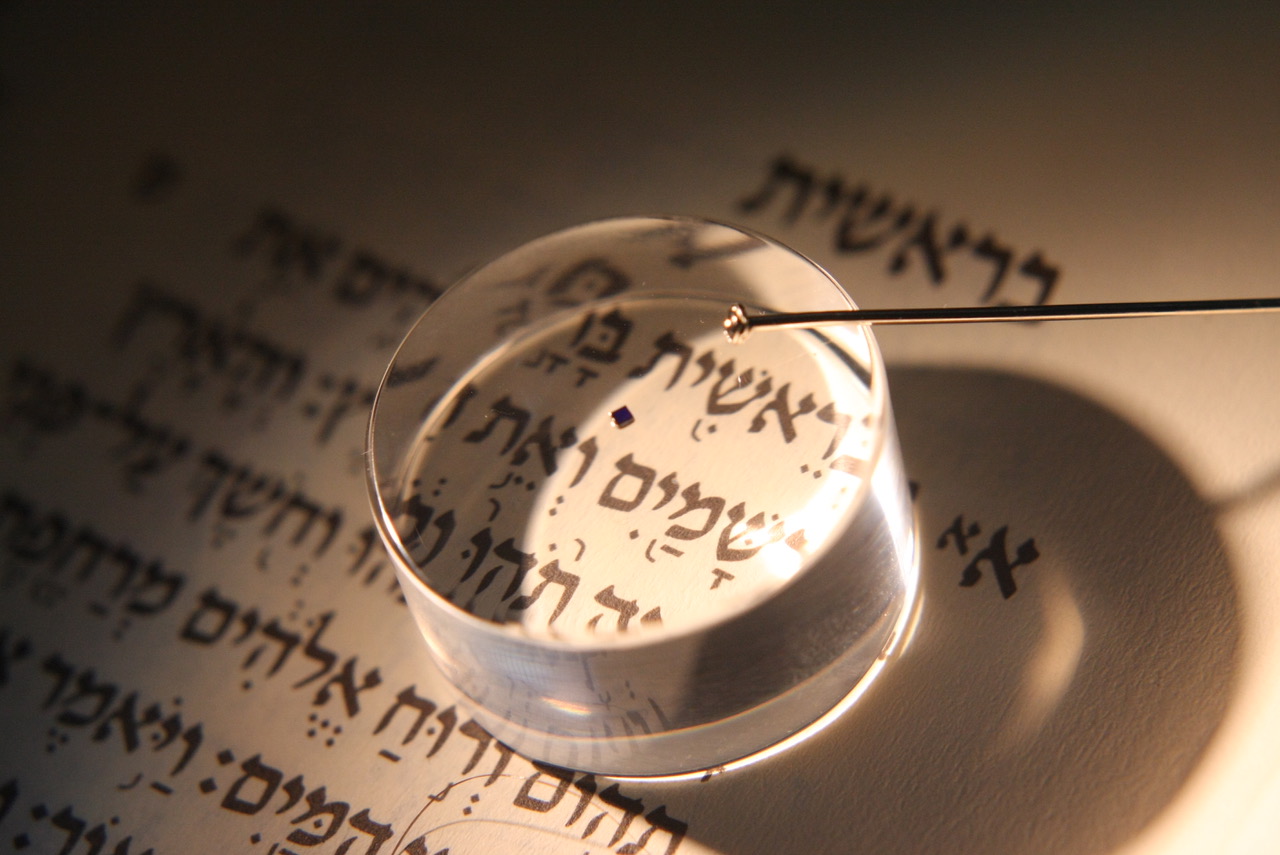Dr. Charlotte Vogt develops solutions for clean energy and greenhouse gas reduction.
In 2005, The Russell Berrie Foundation made its largest-ever single grant — $26 million — to launch the Russell Berrie Nanotechnology Institute (RBNI) at the Technion, the first center of its kind in Israel. The vision for the Institute came to life through an historic philanthropic-government-academic partnership that yielded matching investments by the Technion and Israel’s Ministry of Industry, Trade, and Labor. This $78 million joint venture — the first of its kind in Israel — took a giant first step toward positioning Israel at the forefront of the then-emergent global nanotechnology industry.
RBNI proved to be a transformative investment. The big bet we made with the Technion wholly reflected Russ Berrie’s commitment to the strength of Israel’s future and his entrepreneurial spirit. Using his vision as their touchstone, our Trustees were inspired to act first with this trailblazing investment in hopes of catalyzing public, private, and philanthropic funders to follow. Soon thereafter in 2006, the Israeli government began offering 3-to-1 matching funds for all private gifts to university nanotech and nanoscience centers, dramatically growing the field.
Dr. Shulamit Levenberg’s startup is commercializing technology that can heal spinal cord injuries.
Now, as the Technion celebrates RBNI’s 20th anniversary, the near-limitless potential of nanoscience and technology continues to push the frontiers of discovery. Through attracting top faculty and graduate students, investing in essential capital infrastructure and equipment, and supporting cross-disciplinary innovation, the Institute continues to generate breakthrough discoveries, hundreds of industry collaborations in Israel and worldwide, and collaborations with numerous startups to translate research into real-world applications.
Breakthroughs with Global Impact
RBNI’s achievements have earned international attention with their potential to improve people’s health, protect the planet, and strengthen defense capabilities. Highlights include:
Health diagnostics: Professor Hossam Haick’s team has developed nanosensor devices that detect markers of disease through simple breath or sweat analysis — avoiding invasive tests like blood draws and biopsies. Their AI-powered nanoarray for breath analysis can screen for more than 20 disease states and is being evaluated in hospitals worldwide with promising clinical results.
Clean energy and climate solutions: Thanks to innovative prisms fabricated at RBNI, Charlotte Vogt’s lab now runs up to 10 experiments a day — a huge advance over their previous rate of one or two experiments a week. This innovation accelerates her team’s research into clean energy solutions and greenhouse gas reduction, benefiting scientists in Israel and abroad.
Regenerative medicine: Shulamit Levenberg’s micro-bioreactors facilitate stem cell growth with the potential to stimulate nerve cell regeneration and rewiring in people with spinal cord injuries, sparking hope for recovery from paralysis and disability. She co-founded a startup, NurExone Biologic, that is commercializing this technology with the goal of conducting animal and human trials.
Vast data in the tiniest forms: Among RBNI’s most famous accomplishments is its production of the world's smallest Hebrew Bible, presented by President Shimon Peres to Pope Benedict XVI during his 2009 Israel visit. No larger than a grain of sugar, the gold silicon chip is engraved with more than 1.2 million words and must be magnified 10,000 times to be readable.
Shaping the Next Generation
Dr. Roy Kishony invented the Microbial Evolution and Growth Arena (MEGA) plate as a visual tool to study how bacteria develop resistance to antibiotics.
To expand the ranks of pre-eminent scientists, RBNI developed Israel’s first accredited graduate program in nanoscience and nanotechnology. Named for Russell Berrie Foundation Trustee Norman Seiden z”l, the program attracts outstanding students who go on to hold prestigious academic positions and become leaders in Israel’s hi-tech, biomedical, and defense industries. It also inspired similar programs at Hebrew University and Tel Aviv University, cementing Israel’s leadership position in this field. More recently, the Foundation endowed a new fellowship, The Norman Seiden Fellowship in Nanotechnology and Optoelectronics, designed to attract top Israeli talent to pursue post-docs in Israel .
In just 20 years, RBNI not only transformed the Technion with speed, scale, and lasting impact, but also inspired new investment and innovation. Its legacy endures in a culture of excellence and global collaboration that has elevated Israel’s scientific enterprise and international standing.
The miniscule gold chip in the center contains the world’s smallest Hebrew bible.




